 Julie Andrews was shivering.
Julie Andrews was shivering.
With the sun rarely rarely bothering to appear in the Alps, the weather continued to run rough-shod over location shooting on The Sound of Music. However, miserable weather paled in comparison to the logistics of renting the helicopter that would sweep down and film Andrews as she launched into the title song.
Helicopter rentals were very expensive, and with 20th Century Fox having issued memos to director/producer Robert Wise to rein in the filming, even the perpetually calm director felt the strain. Andrews, a seasoned showbiz veteran at 28, prepared herself for the carefully staged rendering of the song.
The shot was lined up and framed. There couldn’t be the hint of another human being in sight: postulant Maria Rainer, momentarily freed from the stifling abbey, was meant to be singing precisely because she was basking in glorious solitude amid nature. Andrews’ slight figure would land smack in the middle of the frame, a speck against the wide open spaces until the helicopter zoomed in closer, still closer, and then……
From his perch halfway up a tree, Wise called out: “Ready? Roll camera.
And…action!”
Andrews strode purposefully across the meadow, throwing herself into a full-bodied twirl, arms outstretched as if to embrace the entire world, and launched into the film’s opening words: “The hills are alive…”
She lip-synched to her pre-recorded vocal with pinpoint accuracy. But there was a problem.
Each time the helicopter circled back to its starting position for another take, its downdraft proved so strong that Andrews found herself knocked over, sprawling in the grass while trying to avoid the mud. Pulling grass out of her hair and off her costume, make-up adjusted yet again, she would stride, twirl, sing, and once more find herself flat on the ground. Having been knocked down on most of the ten takes, even the placid actress finally got incredibly angry and yelled: “That’s enough!”
But she couldn’t be heard over the sound of the helicopter, and the pilot interpreted his star’s hand signals as a thumbs-up gesture of, ‘You’re doing great – let’s go for one more.’
What a way to begin a multimillion-dollar musical!
 I saw The Sound of Music when I was seven years old. And I have loved it and Julie Andrews ever since. Gaynor and Sound of Music have always been an eye-rolling joke in our family. I fell in love with Mary Poppins at the same time. In 1982 Julie Andrews starred in Victor/Victoria. How I love that musical! I look at my three DVD covers and I am amazed at how much joy Julie Andrews has bought into my life.
I saw The Sound of Music when I was seven years old. And I have loved it and Julie Andrews ever since. Gaynor and Sound of Music have always been an eye-rolling joke in our family. I fell in love with Mary Poppins at the same time. In 1982 Julie Andrews starred in Victor/Victoria. How I love that musical! I look at my three DVD covers and I am amazed at how much joy Julie Andrews has bought into my life.
In 1997 Julie Andrews’s legendary four octave voice wasn’t what it used to be. Yes, she was past sixty but just as active in the singing world as ever. Her voice didn’t feel right. She visited the doctor and non-malignant nodules were discovered on her vocal chords. I have friends who have had these nodules removed successfully. A quick visit to hospital and that’s it! Julie went into Mount Sinai hospital but instead of everything going as anticipated, a complete hash was made of the operation.
Her voice was stolen from her. It would never be the same again.
Can you imagine the unadulterated horror when after her operation she opened her mouth to sing, and a sound totally foreign to her emerged. It must have been a terrifying, frightening experience.
Traumatic for Andrews and devastating for everyone who loved her singing.
When something is taken away that you relied on, that was part of your life, it is tempting to lie on your bed, face to the wall and let life move on without you. It is difficult to think of any other form of living. Andrews was part of a creative world. Her “voice” was taken from her but not her means of expressing herself. I was enthralled to learn that she has teamed up with her daughter Emma and has written countless children’s books. The creative side is still being nurtured and is baring fruit.
Julie Andrews had always believed that: “I am my voice! My voice is what I am.”
For a while, after her operation, she was in total denial. With no voice, who was she?
“Now, I realise, that there is a lot more to me than a mere voice. It’s not all that I am,” she explained.
One tends to classify oneself; to put oneself into a certain compartment. My heart aches at the fact that it took a traumatic experience like the loss of her voice, for Andrews to push at the confines of her previous belief regarding herself.
Due to my eighteen metre “plunge” offstage, I was also forced to walk a different path to the one I intended. And like Andrews, I have discovered happiness on this unprecedented journey. Writing and speaking have given me incredible joy.
Julie Andrews smiles. “Had I not lost my voice, I would never have written the number of books I have. I would never have discovered that inimical pleasure and joy.”
 I love her “Little Bo” series of children’s books, especially “Little Bo in London: The Ultimate Adventure of Bonnie Boadicea”. It’s the fourth and final book in the series about a magical ship’s cat that travels the world with the man who rescued her. When published it was the 27th book she’s co-written with her daughter, Emma Walton Hamilton.
I love her “Little Bo” series of children’s books, especially “Little Bo in London: The Ultimate Adventure of Bonnie Boadicea”. It’s the fourth and final book in the series about a magical ship’s cat that travels the world with the man who rescued her. When published it was the 27th book she’s co-written with her daughter, Emma Walton Hamilton.
She has also directed a musical theatre adaptation of another of her books, “The Great American Mousical.” The show is about a troop of acting mice living beneath the floors of a famous Broadway theatre. Andrews thinks it “would do very well on Broadway,” where she says she would like to direct and produce it.
Andrews says in a strange way that she feels fortunate that she no longer can sing. It has pushed her to find a “different way” of using her voice.
“What I say in the Sound of Music is so true: ‘When the Lord closes a door, somewhere He opens a window!’







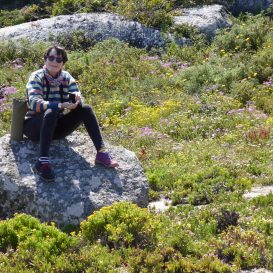

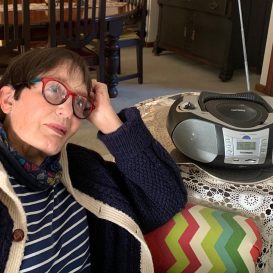


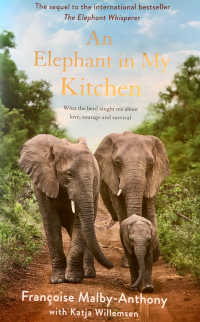

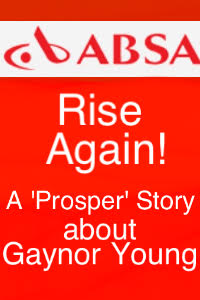

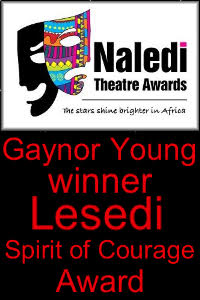



What an interesting read, once again! Without your telling us, we would never have known this …the hills are very much alive with the Sounds of Music, when we take time to hear. I shall make a point of looking for Julie Andrews Edwards books at the children’s library when next there. They sound delightful as does “The Great American Mousical”. My type of enjoyment – even if I am a Granny!
They were written by a “Granny”!!!
With a smile I kiss your eyes, sweet Romary!
Gaynor
Thx G… I really enjoyed this. However, I will forever know that the hills are (were also) alive with the sound of a helicopter slamdunking Julie Andrews onto the icy muddy grass of a lower Alpine hill 🙂
Laugh – Yes, I loved discovering that, Ynor!
With a smile I kiss your eyes
Gaynor
G, again you remind us to search ourselves for untapped but desired talent..something we would like to do but sell ourselves short with negative thoughts. Hence my expressed wish to you that I’m going to try art. Not a creative bone in the body but I just love the thought of relaxing in front of an easel whilst attempting to capture a lovely scene.
Thanks my friend for encouraging me.
What a marvellous idea, Jan! I will introduce you to Doris and she will get you started on your creative venture!
With a smile I kiss your eyes
Gaynor
Gaynor, I just also love Sound of Music! so much so that I want to get the video and watch it this weekend!!!
You’ll love it all over again, Johan!!!
With a smile I kiss your eyes
Gaynor
Hi Gaynor
What an amazing story. I knew that Julie Andrews had”lost” her voice but not the circumstances. Nor how she has channelled her creative talents in another direction, together with her daughter.
I am going to see if I can get hold of her work in Denmark for my girls.
Take care
All my love
David
You mean you haven’t already??? I am appalled, David!!!
Seriously though, they will love it.
With a fond smile I kiss your eyes
Gaynor
Hello dear Gaynor, once again a story that carries us along on a wave of joy. Thank you xx
Thank you, sweet friend, for being such a loyal blog supporter!
This time last year I ‘met’ you, Mims. What a joy!
With a smile I kiss your eyes
Gaynor
Comments are closed.